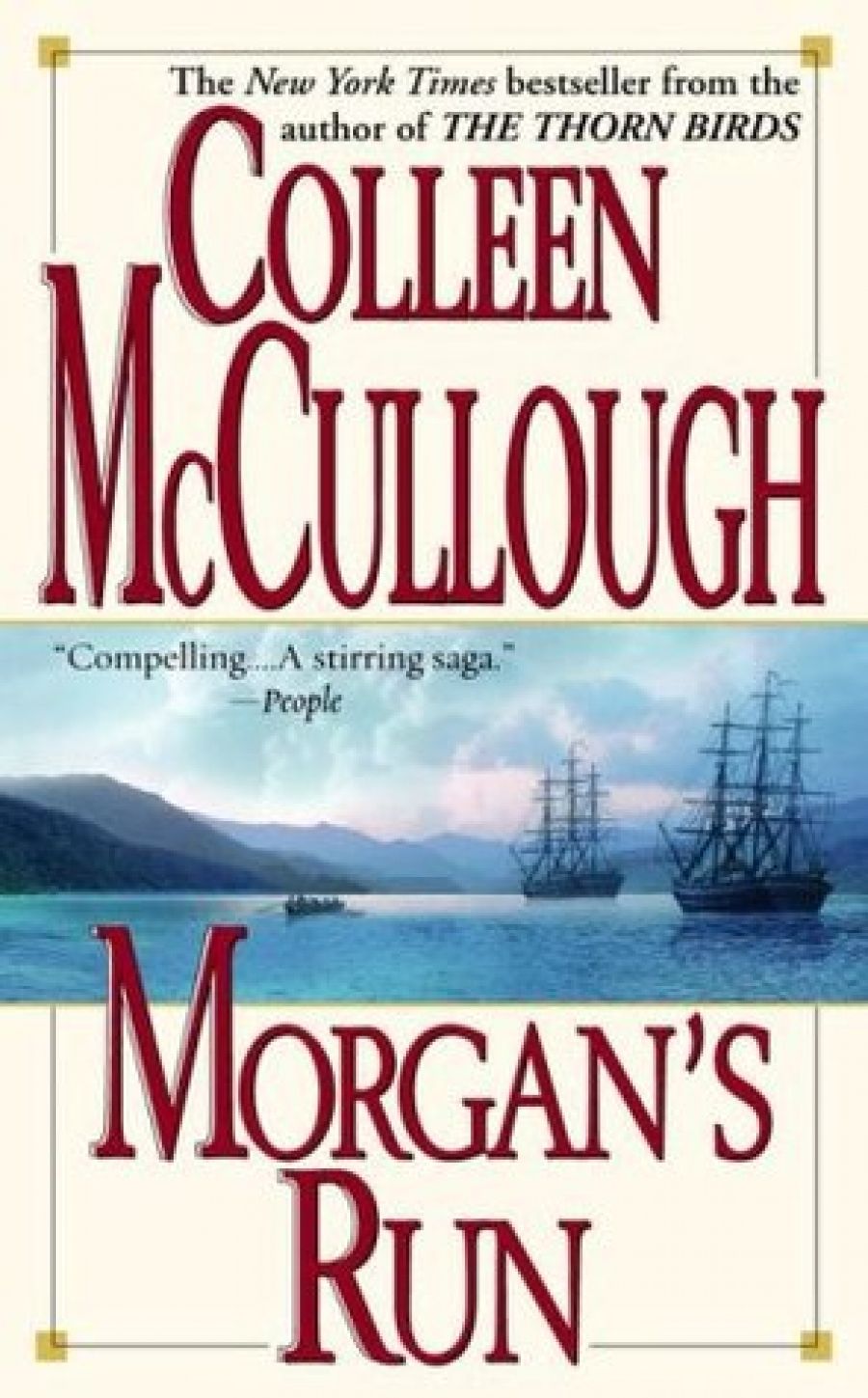
- Free Article: No
- Contents Category: Fiction
- Review Article: Yes
- Online Only: No
- Custom Highlight Text:
I recently took part in a forum on contemporary Australian fiction, a discussion during which the publisher on the panel talked about popular and/or ‘middlebrow’ fiction, and about her ire with reviewers who either simply trashed such novels, or else insisted on emphasising their status as ‘popular fiction’, and on discussing them within the context of its generic expectations and limitations.
- Book 1 Title: Morgan’s Run
- Book 1 Biblio: Century, $43.85 hb, 608 pp
- Book 1 Readings Link: booktopia.kh4ffx.net/YggVrm
But where I sympathised with the exasperated publisher was in her annoyance with the sneering, jeering note struck in most critical commentary on writers like Colleen McCullough or Bryce Courtenay, writers whose work really is not the kind of thing that most contemporary defenders of popular fiction are talking about; by them, middlebrow writing tends simply to be dismissed as bourgeois. Sneering at such writers has become a way of signalling not only that one is a person of taste but also that one is ideologically unimpeachable. The best middlebrow writers make a lot of money, too, which of course makes it all much worse.
It should be clear by now that I am not using this term pejoratively, only as a neutral identification; it’s only middlebrow criticism that’s criminal, not middlebrow fiction. The latter tends to be characterised by its tendency to let the reader off the hook: to offer no difficulties, problems or games, no secrets or surprises. (This is why detective fiction is a different proposition altogether.) The reader of middlebrow fiction is offered a familiar world and is not required to work hard to understand it; this kind of fiction is written for the pleasure and relaxation of its readers.
I can hardly think of a more benign set of motives, actually, and they were enough to make me read McCullough’s latest novel in a mood, likewise benign. Having said that, it seems churlish to mention things like the unnecessarily large mass of historical facts, the wildly unconvincing would-be period dialogue, or the unquestioning acceptance of the most popular, most romanticised, and the most enduring view of Australian’s convict history – that being, after all, the one we all like best; just ask Robert Hughes.
McCullough’s subject is the transportation of the convicts on the First Fleet, with special attention to those who finished up on Norfolk Island. Her hero Richard Morgan is one of those victims of the System beloved of convict-fiction writers over many years: he wuz framed, but, being a true saint among men, he is not going to let it get him down. This kind of character is of course a gift to a novelist; you can make all sorts of horrible things happen to him and he will simply take them on and rise above them, becoming universally beloved in the process.
McCullough, being in her way a profoundly gifted woman, has managed to make this character interesting by investing him with two characteristics rarely found in such – or indeed any – heroes, qualities that moreover define his personality and guarantee his survival: as the observant drunken satirist who frequents his father’s Bristol tavern observes early in the book, Richard Morgan is ‘patient and peaceful’. McCullough makes these qualities in her hero both consistent (as patience and peacefulness always are, almost by definition) and psychologically convincing, and they are what makes him interesting enough to carry the reader – just – through six hundred pages.
McCullough’s passion for research is indulged in this book to the detriment of its pace, and her homework is everywhere apparent. This detracts more than it should from what I think is the main strength of this book apart from the characterisation: its appealing and not unsubtle message is that a successful life is a life in which, at all times, one plays as well as possible the hand one has been dealt, and in the meantime whatever doesn’t kill you makes you stronger. Richard Morgan is essentially a Pollyanna type, a maker of lemonade from lemons, and can survive and help others to do the same even in the most unpromising circumstances. He stays calm in order not to despair, he stays clean in order not to get sick, and as a master gunsmith by trade he uses his manual skills constantly as a way to make life better. And the result is a book with a big sharp hook, the same one wielded by TV’s recent Survivor series: the Swiss Family Robinson Syndrome. There is intense narrative pleasure to be had from a story about people using their wits and skills to survive.
The writing is full of easy, cheerful clichés; the pace is cracking except when slowed by data; and the dialogue is sprinkled with archaisms – ‘ye’ for ‘you’, mostly, and much too often – to make it look eighteenth-century, though the sentiments and thought processes are relentlessly contemporary.
Morgan’s Run is the kind of book that irritates the bejesus out of sophisticated readers trained in literary history and technique. But then, they are not the readers for whom McCullough writes.


Comments powered by CComment